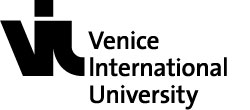S2016 Globalization and Schooling Reconsidered
Professors
Schedule
Course description
The definition of educational systems' roles and challenges change from one nation/society to another, and from one period of time to another. The processes that compose the world's globalization highlight the need to reconsider and update the goals of schooling. Firstly, even though school's role as an organization that promotes knowledge seems to remain prominent, the question of what kind of knowledge and how to teach it deserve reassessment. Secondly, the economic, social and especial familial changes that the world globalization fostered (and still promotes) have change the (future) world into which school graduates (including college and university graduates) are supposed to join. The course: will review historic processes in the development of schools; discuss current approaches to define the goals of schooling; explore the relevance of these approaches to the changing global world and highlight those aspects that need reconsideration; and present new challenges that schools, teachers and parents will be obliged to address in order to gain the best out of schooling. In between, topics like School Mental Health and Parenthood Education will be considered, defined, and discussed.
Syllabus
1. Introduction. The main goals of the course. The structure of the course. Introduction to schooling.
2. Globalization of education
3. Education in times of globalization,
4. Ethical consideration in the education system; reflections on students' rights and obligations.
5. Schooling as a welfare system
6. Debates about the future of schooling in the cyber world
7. Human Rights and the right to learn
8. Technology contribution to schooling – a fact or an incomplete story?
9. School leadership in times of Globalization
10. The school mental health movement
11. School-parents collaboration: Past, present and future
12. School leadership in times of Globalization
Learning Outcomes
The students will reconsider the goals, nature and challenges of schooling in times of globalization and multi-cyber systems. The class discussions will supply them with better tools to analyze existing educational systems as well as to construct an improved educational system of all levels that meet the challenges of global societies, cyber reality and modern family.
Teaching and Evaluation Methods
Students' evaluation will be made based on:
1. Active participation in class discussions – 10%
2. Submission of mid-term paper on challenges to educational systems in their home-land – 30%
3. Class presentation of Mid-term papers – 20%
4. Final paper on ways to intervene in pursuit of promoting better schooling experience for children of a given age (e.g., 1st graders) - 40%
Note: The two submissions should be done both electronically and in-print
Bibliography
Allen, K., Kern, M.L., Vella-Brodrick, D. et al. (2018). What Schools Need to Know About Fostering School Belonging: a Meta-analysis. Educational Psychology Review, 30, 1–34. http://dx.doi.org/10.1007/s10648-016-9389-8
Carlson, S., Gerhards, J., & Hans, S. (2017). Educating children in times of globalisation: Class-specific child-rearing practices and the acquisition of transnational cultural capital. Sociology, 51, 749-765. http://dx.doi.org/10.1177/0038038515618601
Dawes, M. (2017). Early adolescents’ social goals and school adjustment. Social Psychology of Education: An International Journal, 20, 299-328. http://dx.doi.org/10.1007/s11218-017-9380-3
Education 2030: Incheon Declaration and Framework for Action for the implementation of Sustainable Development Goal 4: Ensure inclusive and equitable quality education and promote lifelong learning for all. https://unesdoc.unesco.org/ark:/48223/pf0000245656
Ekstrand, B. (2015). What it takes to keep children in school: A research review. Educational Review, 67, 459-482. doi: http://dx.doi.org/10.1080/00131911.2015.1008406
Fulu, E., & Miedema, S. (2016). Globalization and changing family relations: Family violence and women’s resistance in Asian Muslim societies. Sex Roles, 74, 480-494. https://doi.org/10.1007/s11199-015-0540-7




















